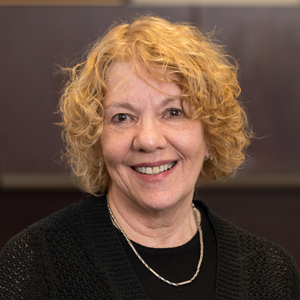Apr 21, 2020 By: yunews
Dr. Karen Shawn
Associate Professor of Jewish Education at Azrieli Graduate School of Jewish Education and Administration and founding editor of PRISM: An Interdisciplinary Journal for Holocaust Educators We certainly have a new perspective from which to commemorate Yom HaShoah this year. Aside from the fact that any ceremony or service will be virtual, and we will watch perhaps alone in our home, what, if anything, will we be thinking about the Holocaust at this time?
Will we compare our enforced isolation with that of our grandparents’ and realize they are in no way comparable? Will we compare current empty store shelves to the hunger in the ghettos and realize that there is no comparison, that we are blessed? We cannot compare our travails with theirs, but we can use the meaning we find in their trials to remain strong. We can reflect on the resilience of those in the Holocaust and recognize that if our people could endure that time, then surely we can endure this trial.
Or will we be too consumed by our individual pain to even care about commemoration this year? Perhaps we are sharing our child’s despair at having his gap year in Israel curtailed, or her final semester of college evaporate and prospects for a career derailed. Perhaps we have lost our livelihood and are behind in our mortgage or rent payment. Perhaps we are worried, waiting to be tested or to hear the results of the test, knowing what we will face if the results are positive. Perhaps we are ill with the virus or are tending to a relative who is ill. Perhaps we are grieving the recent death of a parent, spouse, sibling, or beloved friend whose last moments we were unable to share, whose burial was brief and lonely, for whom a real shiva was impossible, for whom a real kaddish is not being said. Can we find space, given this, to remember?
I came across this poem written by Bertolt Brecht during the Holocaust. No longer in Germany then, he nevertheless wrote, “In the dark times / Will there be singing? / There will be singing, / Of the dark times” (The New York Times Magazine, 2020, p. 16). I’m not sure what he intended with these words, but for me they suggest two imperatives: one, that we will commemorate the darkest of times, the Shoah, even in our own dark time; two, we will come out of this darkness, as our survivors came out of theirs, and we will mourn our losses and then mend, even as did our survivors. We will remember the dark times: as they were then, as they are now, and after they pass. We will always remember.
We certainly have a new perspective from which to commemorate Yom HaShoah this year. Aside from the fact that any ceremony or service will be virtual, and we will watch perhaps alone in our home, what, if anything, will we be thinking about the Holocaust at this time?
Will we compare our enforced isolation with that of our grandparents’ and realize they are in no way comparable? Will we compare current empty store shelves to the hunger in the ghettos and realize that there is no comparison, that we are blessed? We cannot compare our travails with theirs, but we can use the meaning we find in their trials to remain strong. We can reflect on the resilience of those in the Holocaust and recognize that if our people could endure that time, then surely we can endure this trial.
Or will we be too consumed by our individual pain to even care about commemoration this year? Perhaps we are sharing our child’s despair at having his gap year in Israel curtailed, or her final semester of college evaporate and prospects for a career derailed. Perhaps we have lost our livelihood and are behind in our mortgage or rent payment. Perhaps we are worried, waiting to be tested or to hear the results of the test, knowing what we will face if the results are positive. Perhaps we are ill with the virus or are tending to a relative who is ill. Perhaps we are grieving the recent death of a parent, spouse, sibling, or beloved friend whose last moments we were unable to share, whose burial was brief and lonely, for whom a real shiva was impossible, for whom a real kaddish is not being said. Can we find space, given this, to remember?
I came across this poem written by Bertolt Brecht during the Holocaust. No longer in Germany then, he nevertheless wrote, “In the dark times / Will there be singing? / There will be singing, / Of the dark times” (The New York Times Magazine, 2020, p. 16). I’m not sure what he intended with these words, but for me they suggest two imperatives: one, that we will commemorate the darkest of times, the Shoah, even in our own dark time; two, we will come out of this darkness, as our survivors came out of theirs, and we will mourn our losses and then mend, even as did our survivors. We will remember the dark times: as they were then, as they are now, and after they pass. We will always remember.